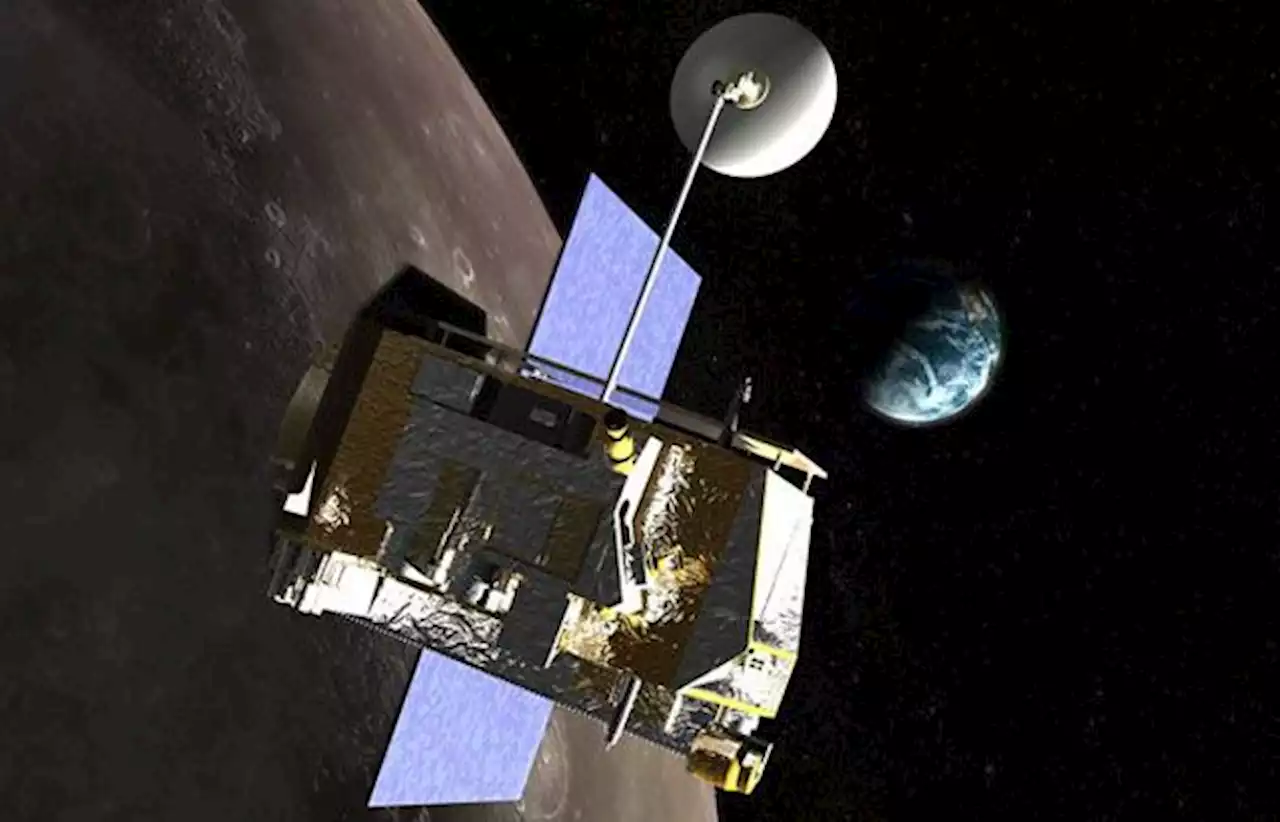The first total lunar eclipse of 2022 means no sun for solar-powered probes operated by NASA, India and China.
Since the LRO started its mission in lunar orbit in September 2009, the spacecraft has experienced 11 total, so its team knows exactly how to prepare for this eclipse's 85-minute-long period of totality, or total darkness — namely by powering down.
"When LRO goes through long eclipses, any drain on our battery is not ideal, so we turn off the instruments and wait until we can completely recharge the battery before turning the instruments back on," LRO Project Scientist Noah Petro told Space.com."We also will warm the spacecraft up so that when we are in the shadow of the Earth, we don’t cool down too much and get into a position where the spacecraft and instruments are too cold.
United States Latest News, United States Headlines
Similar News:You can also read news stories similar to this one that we have collected from other news sources.
 Super Flower Blood Moon lunar eclipse: Is it the 1st of 4 supermoons?Retired astrophysicist Fred Espenak has been observing the moon for about 60 years.
Super Flower Blood Moon lunar eclipse: Is it the 1st of 4 supermoons?Retired astrophysicist Fred Espenak has been observing the moon for about 60 years.
Read more »
 Americans to see 'Super Flower Blood Moon' eclipse this weekendPeople across the country looking up to the heavens this weekend will be able to see a 'Super Flower Blood Moon' total lunar eclipse.
Americans to see 'Super Flower Blood Moon' eclipse this weekendPeople across the country looking up to the heavens this weekend will be able to see a 'Super Flower Blood Moon' total lunar eclipse.
Read more »
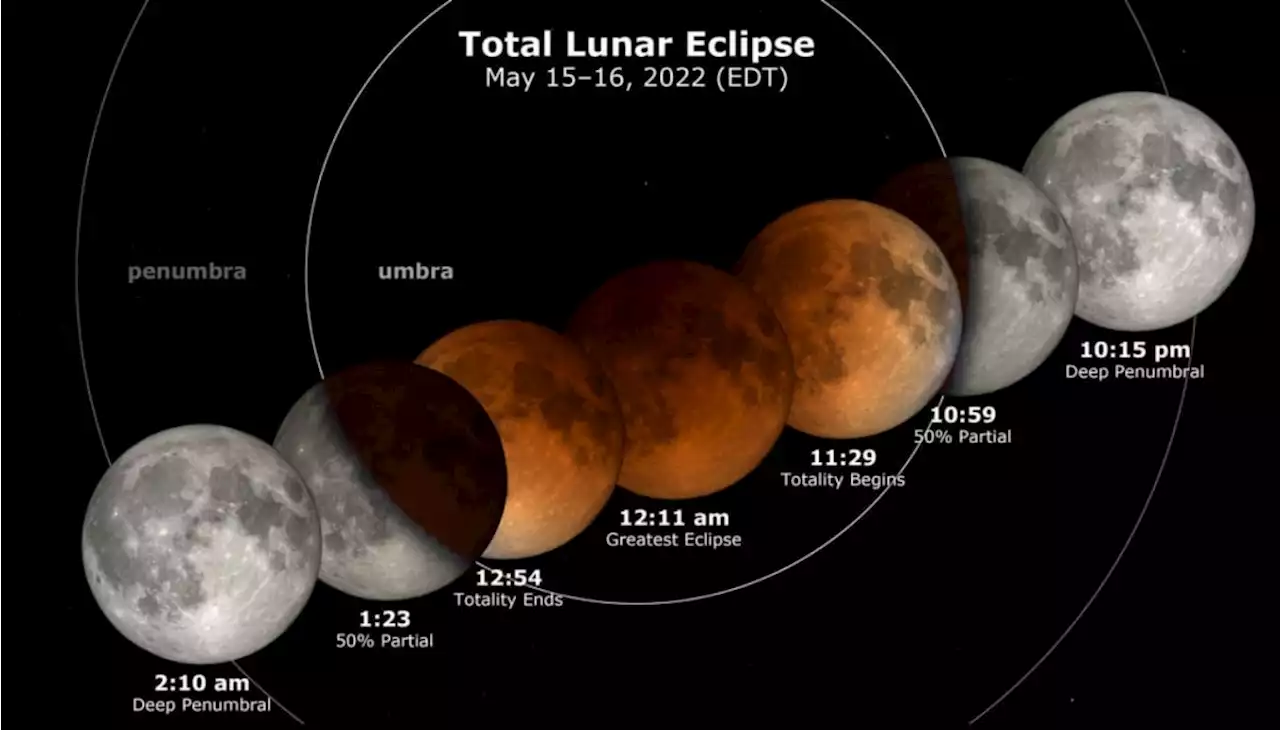 What time is the Super Flower Blood Moon lunar eclipse?Here are the critical times to see the Super Flower Blood Moon eclipse on May 15 and May 16, 2022.
What time is the Super Flower Blood Moon lunar eclipse?Here are the critical times to see the Super Flower Blood Moon eclipse on May 15 and May 16, 2022.
Read more »
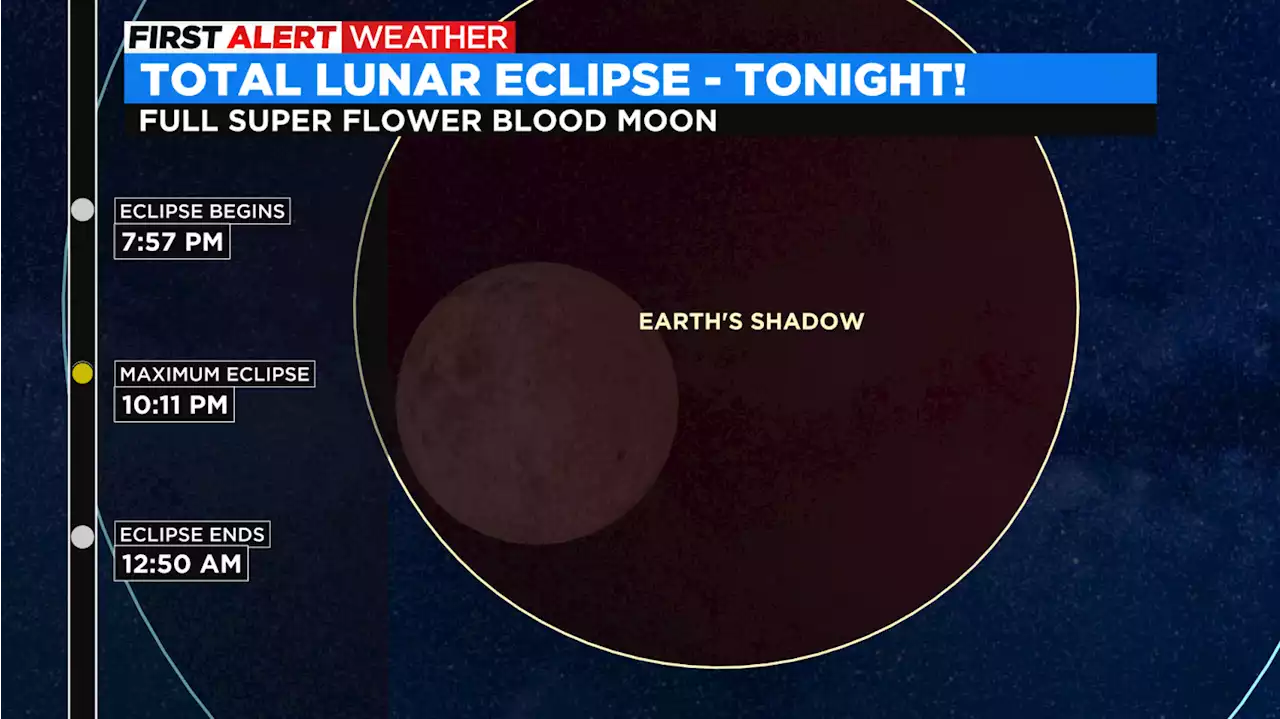 Scattered Clouds Expected For Tonight's Total Eclipse Of Full Super Flower Blood MoonMake plans to see tonight's total eclipse on the moon. It will reach a peak at 10:11 p.m. Mountain Time.
Scattered Clouds Expected For Tonight's Total Eclipse Of Full Super Flower Blood MoonMake plans to see tonight's total eclipse on the moon. It will reach a peak at 10:11 p.m. Mountain Time.
Read more »
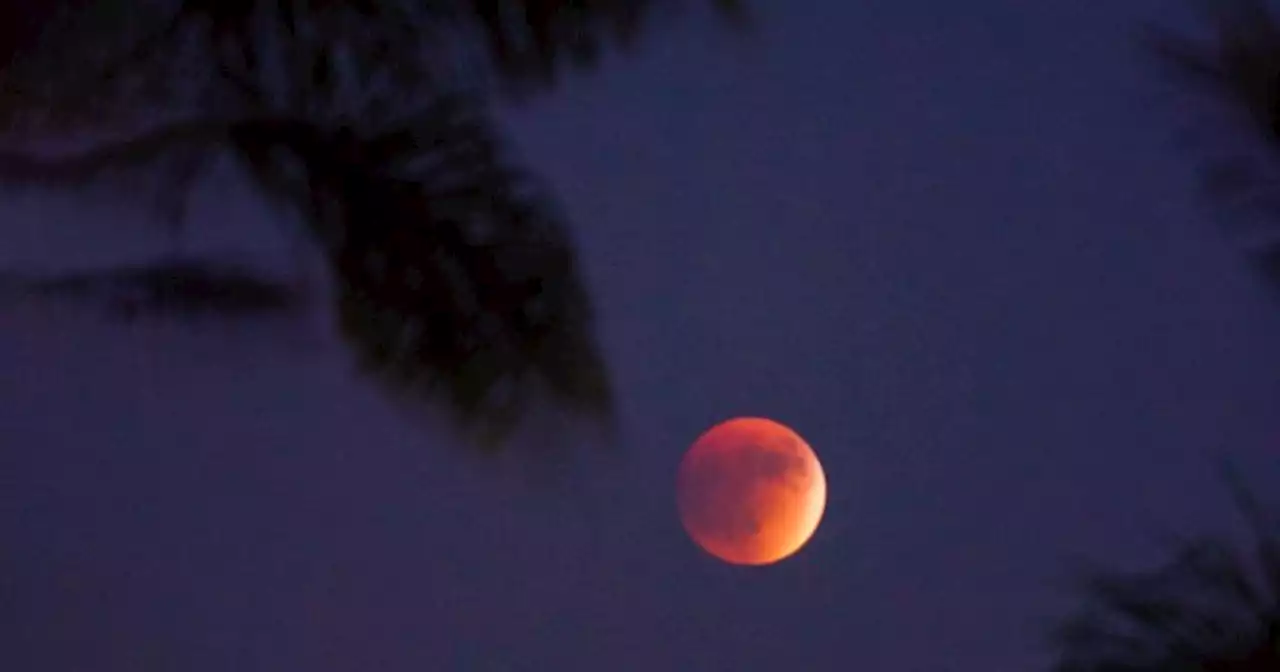 A Rare 'Super Blood Moon' Is Coming: Here's How To Harness Its PowerThere's nothing like a full moon to stir up energy and encourage us to let go of what we need to release—and the upcoming full super blood moon is no exception. Here's what to know about it, plus how to work with it. 🌕
A Rare 'Super Blood Moon' Is Coming: Here's How To Harness Its PowerThere's nothing like a full moon to stir up energy and encourage us to let go of what we need to release—and the upcoming full super blood moon is no exception. Here's what to know about it, plus how to work with it. 🌕
Read more »
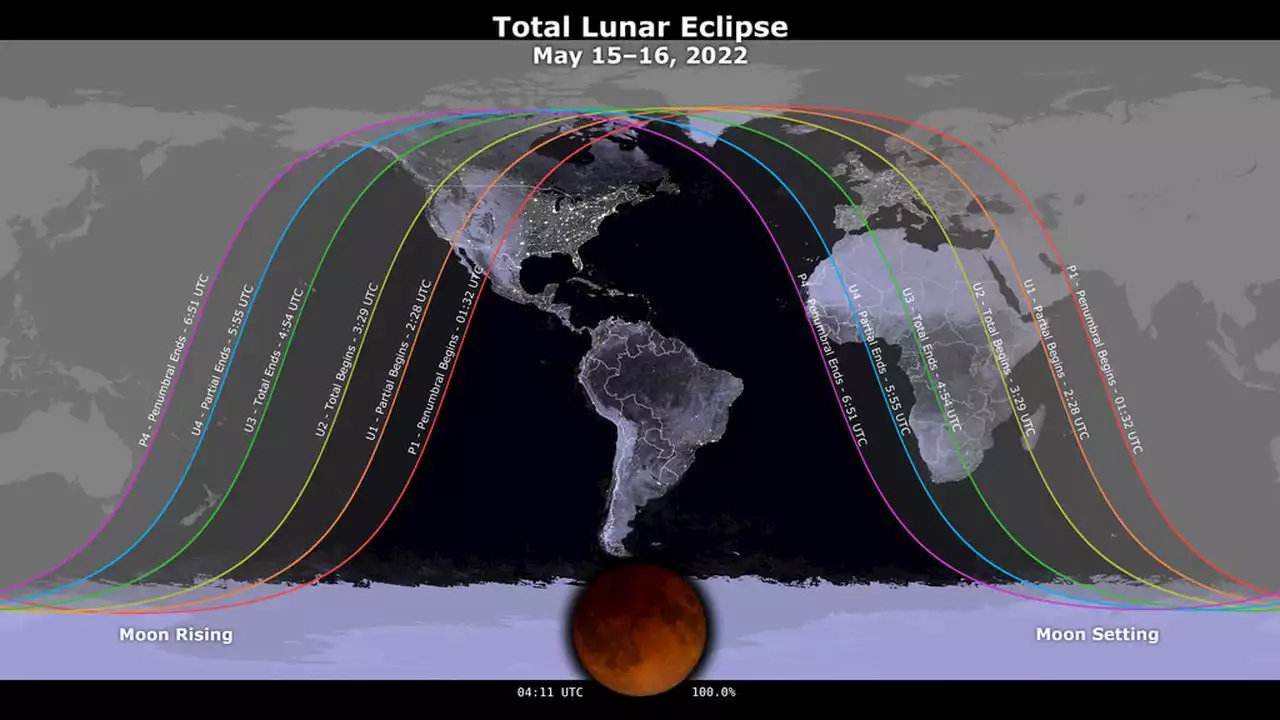 Super blood moon eclipse 2022: See it tonightIf it’s too cloudy in your area to see the eclipse in person, NASA will have livestreams of it from around the world. One of the streams will be from NASA_Marshall in Huntsville.
Super blood moon eclipse 2022: See it tonightIf it’s too cloudy in your area to see the eclipse in person, NASA will have livestreams of it from around the world. One of the streams will be from NASA_Marshall in Huntsville.
Read more »
